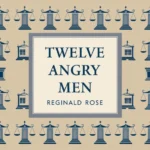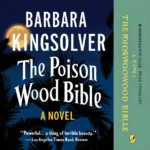Introduction
The Little Liar PDF has captured readers worldwide with its intense storyline and complex characters. This novel dives into themes of deception, truth, and personal growth, making it both a compelling and thought-provoking read. In this article, we’ll dive deep into the world of The Little Liar, exploring its themes, characters, and what makes it such an impactful story.
| Name of PDF | The Little Liar |
|---|---|
| No Pages | 546 |
| Author | Mitch Albom |
| Language | English |
| GenresCharacters | Novel, Historical Fiction, Psychological Fiction, Jewish Fiction |
| Size | 1.13 MB |
| Chek, latest edition |
Table of Contents
About the Author
The mind behind The Little Liar is a celebrated author known for their expertise in psychological and suspense-driven storytelling. Previous works have laid the groundwork for this novel, as they explore similar themes of morality, human emotion, and the thin line between truth and deceit.
Summary of the Plot
The Little Liar follows the journey of a young protagonist who becomes entangled in a web of lies that spirals out of control. This thrilling plot addresses the repercussions of dishonesty, the pursuit of redemption, and the protagonist’s internal struggles, keeping readers on edge until the last page.
Setting of the Novel
The novel is set in a small town where everyone knows each other, creating a backdrop where secrets are hard to keep and lies unravel quickly. This setting intensifies the story’s impact, as the close-knit community adds layers of tension and suspense.
Main Characters
The protagonist is a young person caught between innocence and the complex world of adult decisions. Other pivotal characters contribute to the story’s depth, each bringing unique perspectives on truth, deception, and friendship.
Themes in The Little Liar: A Novel
Honesty and Deception
The book dives deep into the consequences of lying and the toll it takes on relationships and self-identity. Through the protagonist’s journey, readers experience the internal battle between truth and deceit.
Friendship and Betrayal
Friendship plays a central role, as relationships are tested by lies and secrets. The protagonist’s friends and allies each have their own struggles, showcasing how easily trust can be broken and rebuilt.
Personal Growth and Redemption
One of the novel’s core themes is personal redemption. As the protagonist confronts past mistakes, they undergo significant growth, learning from their missteps and striving to make amends.
The Role of Lies and Truth
Deception drives the plot forward, creating dramatic tension and posing questions about the value of honesty. Through the protagonist’s choices, The Little Liar highlights the complexity of truth and the cost of keeping secrets.
Psychological Exploration of The Little Liar Characters
The author provides a deep psychological insight into each character’s thoughts and motivations, adding layers of empathy and understanding. As readers, we see the struggle between morality and survival, a conflict that shapes the characters’ decisions and growth.
Moral Ambiguities
One of the intriguing aspects of The Little Liar is its moral complexity. Not every character’s actions are clear-cut; instead, the novel reveals grey areas, making readers question what they would do in similar situations.
Narrative Style and Structure
The narrative is crafted with suspense and foreshadowing, pulling readers into the story’s twists and turns. This approach keeps the pacing tight and the stakes high, leaving readers wondering what will happen next.
Symbolism and Imagery
The Little Liar employs powerful symbols and imagery to convey emotional depth. Certain recurring symbols, such as broken mirrors or hidden letters, echo the themes of truth and self-reflection, amplifying the novel’s psychological resonance.
Critical Reception
Critics have praised The Little Liar for its gripping storyline and multidimensional characters. The novel’s success has been marked by several awards, adding to its reputation as a standout work in contemporary fiction.
Cultural and Social Impact
Since its release, The Little Liar has struck a chord with readers from various backgrounds. Its exploration of deception, friendship, and morality resonates on a universal level, sparking discussions about honesty in modern society.
Comparisons to Similar Novels
The Little Liar shares thematic similarities with novels exploring identity and deception. However, its unique approach to character development and moral ambiguity sets it apart from other stories in the genre.
Conclusion The Little Liar Reviews
The Little Liar is more than a story about lies; it’s an exploration of human nature, personal growth, and the pursuit of redemption. With relatable characters and thought-provoking themes, this novel is a must-read for anyone interested in psychological drama and moral questions.
FAQs about The Little Liar PDF
Who is the author of The Little Liar?
The author is known for their work in psychological fiction, often focusing on themes of morality and human emotion.
What are the main themes in The Little Liar?
The novel delves into honesty, deception, friendship, betrayal, and personal growth.
Why is the setting significant in the story?
The small-town setting amplifies the tension as secrets and lies become harder to conceal.
How has The Little Liar been received by critics?
Critics have praised the novel for its gripping plot, complex characters, and exploration of moral ambiguity.
Is The Little Liar suitable for all ages?
The book addresses mature themes, making it more appropriate for young adults and older readers.
Is The Little Liar a good book?
simultaneously heartbreaking and heartwarming
Is The Little Liar based on a true story?
Although A Little Liar is fiction, it’s historical fiction




